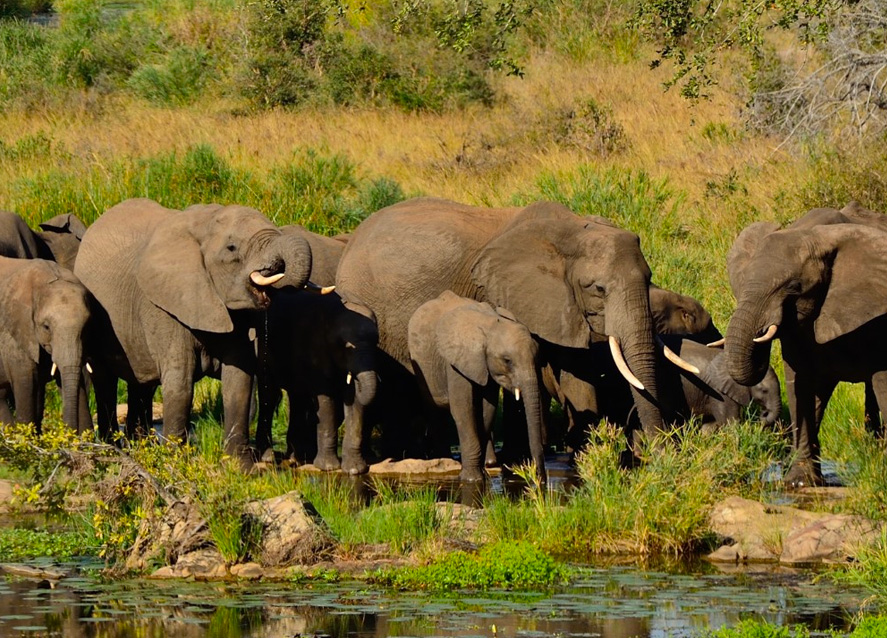How Long do Elephants Live? The In-depth Elephant Longevity.
How Long do Elephants Live; Elephants are among the most magnificent and intellectual beasts on our earth, which automatically draw the attention of all wildlife lovers and conservationists. One of the general questions that have always remained in people’s minds is: how long does an elephant live? Understanding the life span of these great giants provides important information about biology, social structure, and its conservation needs. This blog post will look at what the average lifespan of elephants is, the factors that determine how long they live, and what this means for conservation.
Lifespan of Elephants.
The lifespan of elephants varies significantly depending on the species, environment, and social setting in which they exist. A breakdown of the average lifespans for the two main species of elephants follows:
African Elephants (Loxodonta africana).
Average Lifespan: African elephants typically have a life that varies between 60 to 70 years in the wild. They can live beyond this range; some have been known to be in their 80s and live well.
Lifespan Factors: In the case of African elephants, poaching, habitat loss, and human-wildlife conflict do occur and could affect their lives.
Asian Elephants (Elephas maximus).
Average Life Expectancy: Asian elephants have a slightly shorter life expectancy of about 48 years in the wild. Some of them can live to as many as 80 years in captivity, where they are often better looked after and protected.
Conservation Issues: The Asian species of elephants also face the threat of habitat loss, poaching, and human encroachment, similar to their African cousins.

What are the Factors Affecting Elephant Longevity.
Many factors that need mentioning while describing elephant longevity are as follows:
Natural Predators and Threats.
Adult elephants have few natural predators in the wild. However, lion and other large carnivores may attack the young calves. Poaching for ivory and habitat destruction by humans are more significant factors affecting their lifespan.
Habitat and Food Availability.
In addition, food and water sources should be available for the elephant if it has to be in good health and live long. Elephants are herbivores that consume large amounts of grasses, leaves, fruits, and barks. When these are adequately available to them, it aids in sustaining their health.
Social Structure.
Elephants are highly social animals that live in very matriarchal herds. Strong social bonds and support within the herds improve their welfare and survival. Matriarchs often lead their families to better feeding grounds and away from danger.
Human Impact.
Human activities have a very serious impact on the lives of elephants. Habitat fragmentation, expansion of agriculture, and various conflicts with humans result in stress and, subsequently, reduced survival rates. The importance of conservation, therefore, cannot be overestimated to prevent this from happening and to ensure that elephants will always have an opportunity to thrive in the wild.
Captivity versus Wild
Unlike their wild counterparts, captive elephants tend to live longer, mostly due to regular veterinary care; at the very least, a somewhat stable supply of food; and protection from poachers and predators alike. However, captivity can lead to stress and health issues if not properly monitored or policed.

Notable Records of Lifespan
While the average estimation of life provides a good approximation, records about the longevity of elephants have been quite remarkable:
Oldest Recorded Elephant: Lin Wang, an Asian elephant living in a zoo in Taiwan, held the record for the oldest recorded elephant and reached the ripe age of 86 years. His great longevity was said by experts to be because of excellent care and a proper diet.
Records of Wild Lifespan: A few wild African elephants live into their 80s, although this occurrence is very rare. Experts estimated that the oldest known wild African elephant was around 65 years old when they last saw it.
Our Best Safaris to See Elephants in Africa.
22 Days Best of Uganda Wilderness Adventure
18 Day Exploring Uganda Safari
15 Day Gorillas-Chimpanzee and Big 5 Safari
15 Day Uganda-Kenya-Tanzania Safari Adventure
14 Day Uganda-Rwanda Wildlife and Primates Safari
14 Days Uganda and Kenya Wildlife Safari
10 Day Uganda Wildlife and Primates Safari
10 Day Highlights of Uganda Safari
7 Day Kenya Wildlife Safari Tour
Remarks on the Lifespan of Elephants.
Elephants are one of those mammals that have demonstrated tremendous resilience and adaptiveness in their lifetime. Living for an average span of 60 to 70 years, elephants face various challenges that may affect the span of life. It is important to understand some of the elements that affect their lifespan, which will be helpful in achieving conservation needed to save these great mammals; As their habitats continue facing threats from human activities, it is very important to support efforts dealing with elephant protection and the ecosystems.
A rise in awareness and participation in their conservation may be our only hope to make sure that future generations can witness their grandeur roaming in the wild.











